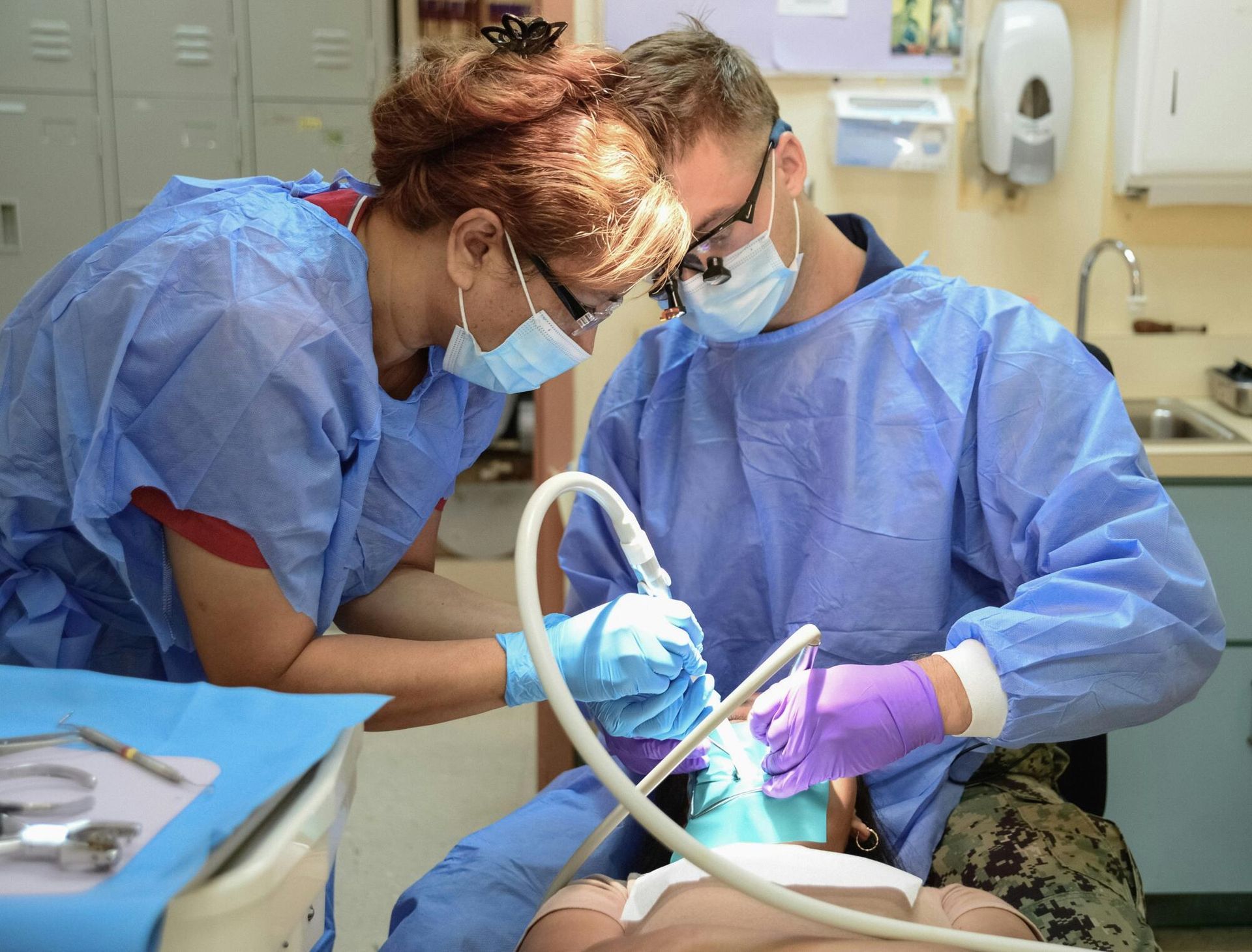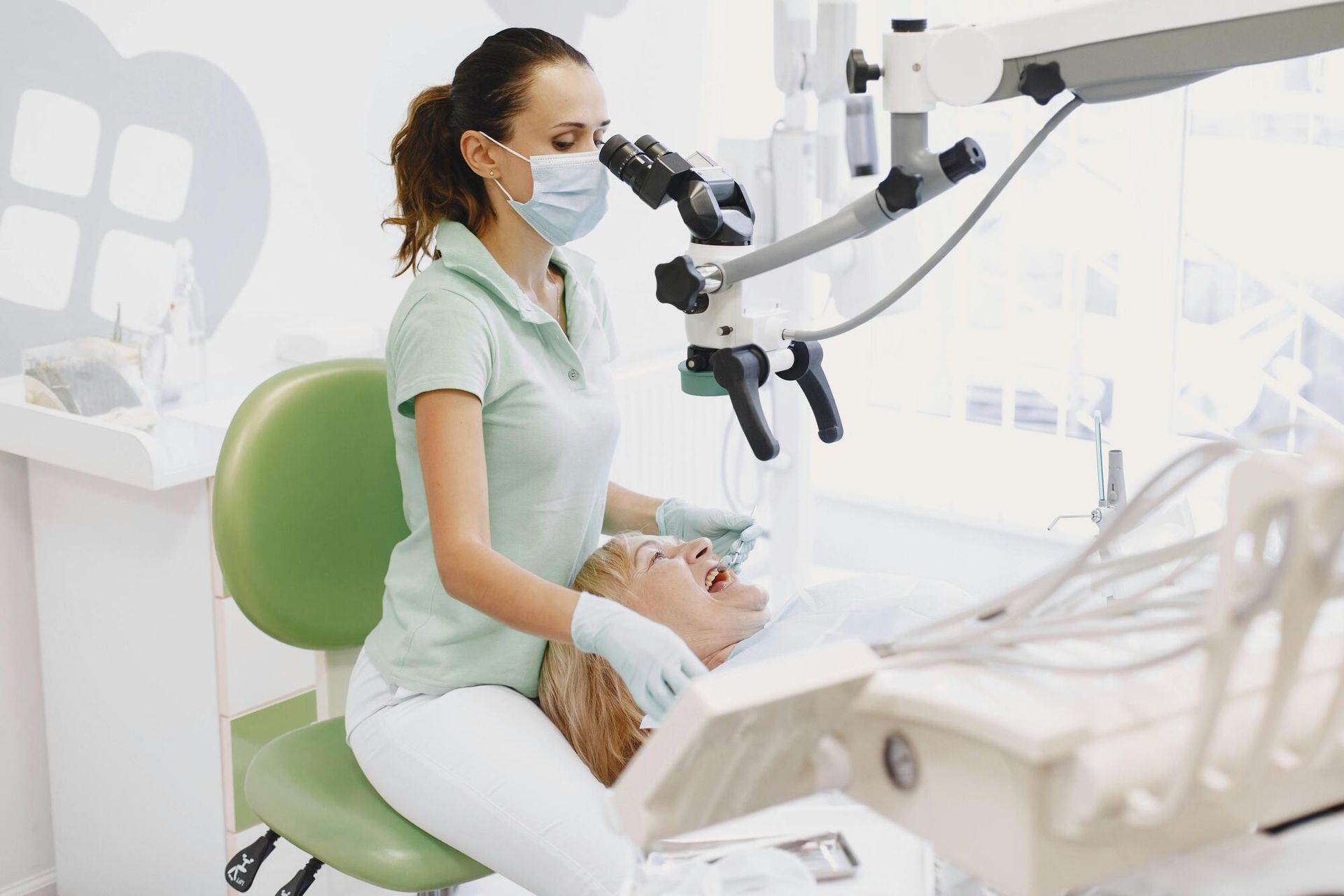The TMD-Headache Connection: Why Your Jaw Might Be Giving You Headaches
According to the National Institute of Dental and Craniofacial Research, around 5% of American adults have a temporomandibular disorder (TMD). However, this number is likely to be much higher, as there are many variables, such as who's studied and how the condition is diagnosed and measured.
While TMD can be a temporary issue for some, it can be chronic for others. As a result, it can decrease your quality of life; pain and discomfort can creep in.
For example, TMD may be the cause of unexplained headaches. In that case, a TMD specialist could help.
Read on to find out more about TMD, related headaches, and ways to get help from a jaw pain specialist.
What's TMD?
TMD is a disorder that results from problems in the jaw joint, the chewing muscles, or both. It involves the temporomandibular joint (TMJ), which stretches from your skull to the lower jaw.
When you have TMD, it can result in tooth pain because many people clench their jaws and grind their teeth. And bad habits (like gum-chewing and nail-biting) can exacerbate tooth pain too.
The tricky thing about TMD is that it can come and go, so many people don't even realize they have this disorder. There are flare-ups that can happen and shine a spotlight on related problems, but otherwise, you may lead a relatively normal life most of the time.
How Jaw Problems Turn Into Headaches
If you've already suffered from headaches and migraines, then you'll understand that they're not simple matters. There are many small things that can add up and cause pain and discomfort, and it's the same with TMD. Your TMJ can cause headaches due to several reasons.
The main one is muscle tension and myofascial pain. You can overwork your jaw muscles from the following:
- Clenching
- Grinding/bruxism
- Poor posture
- Chewing hard foods
When the muscle is overused, it'll ache, and the pain will travel up to the temples, forehead, and the side of your head. The result is a tension-type headache.
In addition, there may be joint inflammation or internal derangement (displaced joint disc). This produces local pain that can radiate into your head and ear area.
Another issue may be nerve convergence (trigeminocervical convergence). The sensory nerves from your jaw connect with other head and neck pain pathways in the brainstem, so you might feel jaw pain as a headache, and vice versa.
Some people may also have trigger points (tight spots) and referred pain in the jaw area. This can mimic dental pain, facial pain, and headache.
Lastly, mental and physical health can be closely related to one another. For example, if you have poor sleep and stress, then this can amplify muscle tension and pain perception. Or if you have anxiety or depression, these can make both TMD and headaches more persistent.
How to Tell Whether Your Headaches Are Coming From Your Jaw
As you can see from the above section, it can be difficult to tell where your headaches are coming from, especially if they're unexplained. However, if you notice that you have other symptoms of TMD, then you can get jaw pain relief, and therefore, fewer and less painful headaches.
So how can you tell if you're having a TMD-related headache? First of all, a huge sign is if you get head pain when you chew, yawn, or use your jaw for long periods of time. The headache may be accompanied by jaw stiffness, clicking/popping, or limited mouth opening.
Is the pain at the temples, side of your head, behind the eyes, or around the ear? Do you experience jaw muscle tenderness when you touch it? Then it's very likely that you have a TMD-related headache, especially if you have a history of clenching or grinding your teeth, recent dental work, or stressful periods.
If you experience a sudden, severe headache that's unlike your usual headaches, or you get the following symptoms, then it's probably not TMD:
- Visual changes
- Weakness
- Numbness
- Difficulty speaking
These can signal neurological problems and are red flags. So seek urgent medical care if you experience any of the above symptoms.
What a TMD Specialist Will Do
Should you realize that you have TMD and related headaches, then seeking a specialist dentist is the best course of action.
First, they'll take a detailed history, including:
- Headache characteristics
- Jaw symptoms
- Dental history
- Sleep
- Stress
- Medications
- Trauma
After that, your dentist will do an extensive physical exam. They'll inspect and measure your mouth opening and listen for joint sounds, such as clicking. In addition, they'll palpate your jaw muscles and the TMJ, as well as assess your neck and posture.
From there, the specialist can rule out things such as:
- Primary headache disorders (migraine, tension, cluster)
- Dental causes
- ENT problems
- Neurological causes
At our office, we offer dental TENSing, which stands for "transcutaneous electrical nerve stimulation." This method delivers small electrical charges to your jaw and face muscles for about an hour.
After the dental TENSing treatment for TMD, it should relax your facial muscles. From there, we can evaluate your most comfortable bite position and create a custom orthotic device that trains your jaw to stay in this position.
First-Line Treatments
Of course, if you have TMD and related headaches, you'll want to start with conservative and reversible measures first.
This begins with self-care and behavior changes. Reduce your stress with mindfulness and CBT techniques, and be aware of bad habits like nail biting or chewing pens.
You should also avoid hard, chewy foods and eat soft items during flare-ups. Don't do wide yawning and learn to use a "jaw rest" posture where your teeth are slightly apart, lips are together, and tongue is on the roof of your mouth. Physical therapy and jaw exercises can help immensely too.
For inflammation and pain, you can use NSAIDs, but keep their use to a minimum. Stabilization splints can also help, and your dentist can prescribe a muscle relaxant or anti-anxiety medication if you need them.
Next-Level Treatments
If the first-line treatments don't work, then you may need to try next-level treatments. We mentioned dental TENSing earlier, but there's no singular TMJ disorder treatment; there are many more available.
For example, a specialist may give you local corticosteroid injections into the TMJ or trigger-point injections into the muscles as a short-term solution. They may use Botox injections if you have refractory myofascial TMD or severe muscle pain from bruxism.
For more serious cases, there are minimally invasive procedures such as arthrocentesis and arthroscopy. These irrigate the TMJ and treat disc problems; they're used for selected joint disorders if conservative therapy doesn't work.
The most drastic measure available is open joint surgery, but this is only used as a last resort. If you have structural joint disease that doesn't respond to other treatments, then your TMD specialist may recommend this course of action.
Practical Things You Can Start Doing Today
One of the best things you can do for yourself is to practice self-care. If you've been stressed out and haven't been sleeping well, then do things to remedy that, such as:
- CBT
- Relaxation
- Short guided meditations
You can do many of the first-line treatments we've mentioned on your own too. If you have muscle tightness or joint swelling, use heat for the former and cold for the latter. Do this for 10-15 minutes at a time, several times a day.
If you know that you have bruxism, then try using a nightguard to protect your teeth, jaw, and muscles. Ideally, you should get one fitted by a dentist who treats TMD, as over-the-counter ones are less precise.
To help track your headaches and TMJ pain, it's beneficial to start a 2-4 week diary. Things to note include:
- Time
- Pain scale (0-10)
- Activity
- Teeth grinding/clenching
- Foods eaten
When to See a TMD Specialist
The above steps may be manageable to do on your own. However, it's likely that you may need to see a TMD specialist in the future, especially if problems persist after 2-4 weeks of self-care.
If your jaw pain or headaches are interfering with the below, then see your dentist:
- Eating
- Sleep
- Work
Keep in mind that while most headaches will resolve if you do first-line TMD treatments, you'll need patience if you have a chronic case. It can take weeks to months for your pain to settle.
Seek a TMD Specialist if You're in Pain
Headaches can already be tough to deal with, but when you add TMJ issues into the mix, it can really affect your daily life. But you don't have to let it be a long-term problem.
If you suspect that your headaches are related to your jaw disorder, then it's best to seek out a TMD specialist. This professional can take a look at your personal situation, consider your medical history, and then work with you to get a treatment plan that's best for you.
If you're now looking for a
TMD specialist, then look no further than Dental Care Burke.
Schedule a consultation with us today and get 15% off full treatment plans as a new patient.












